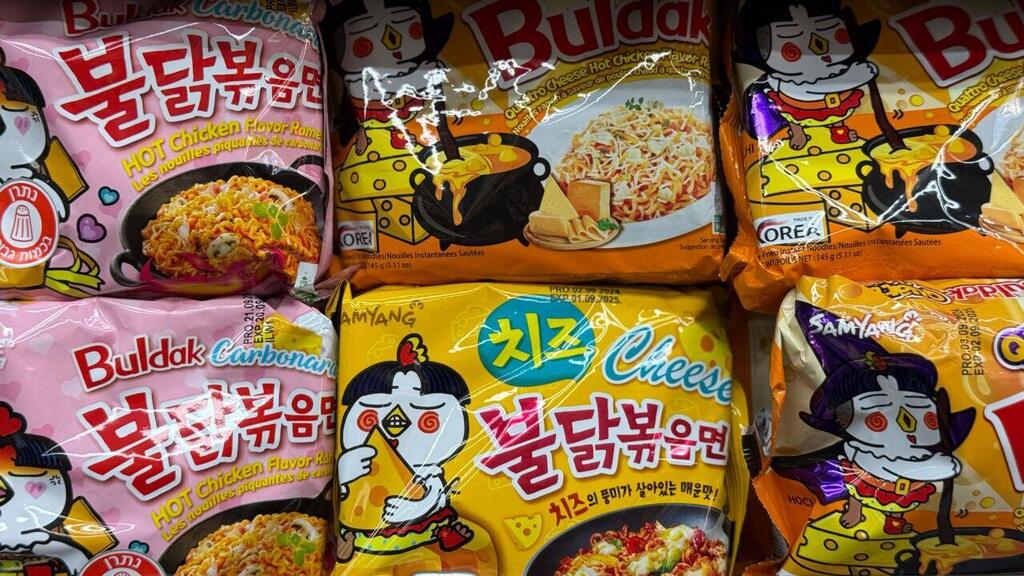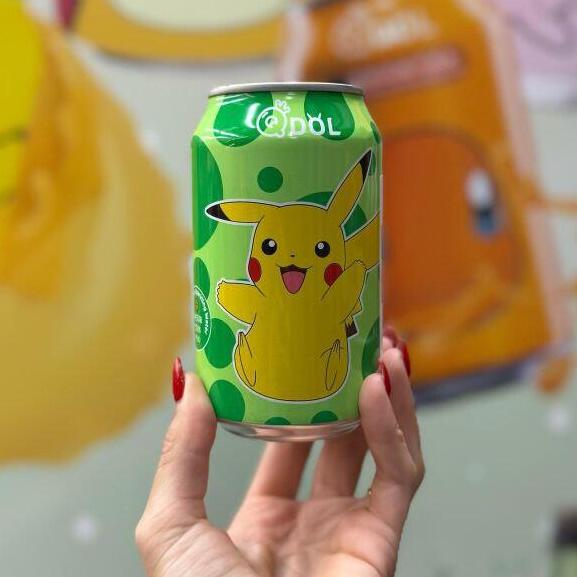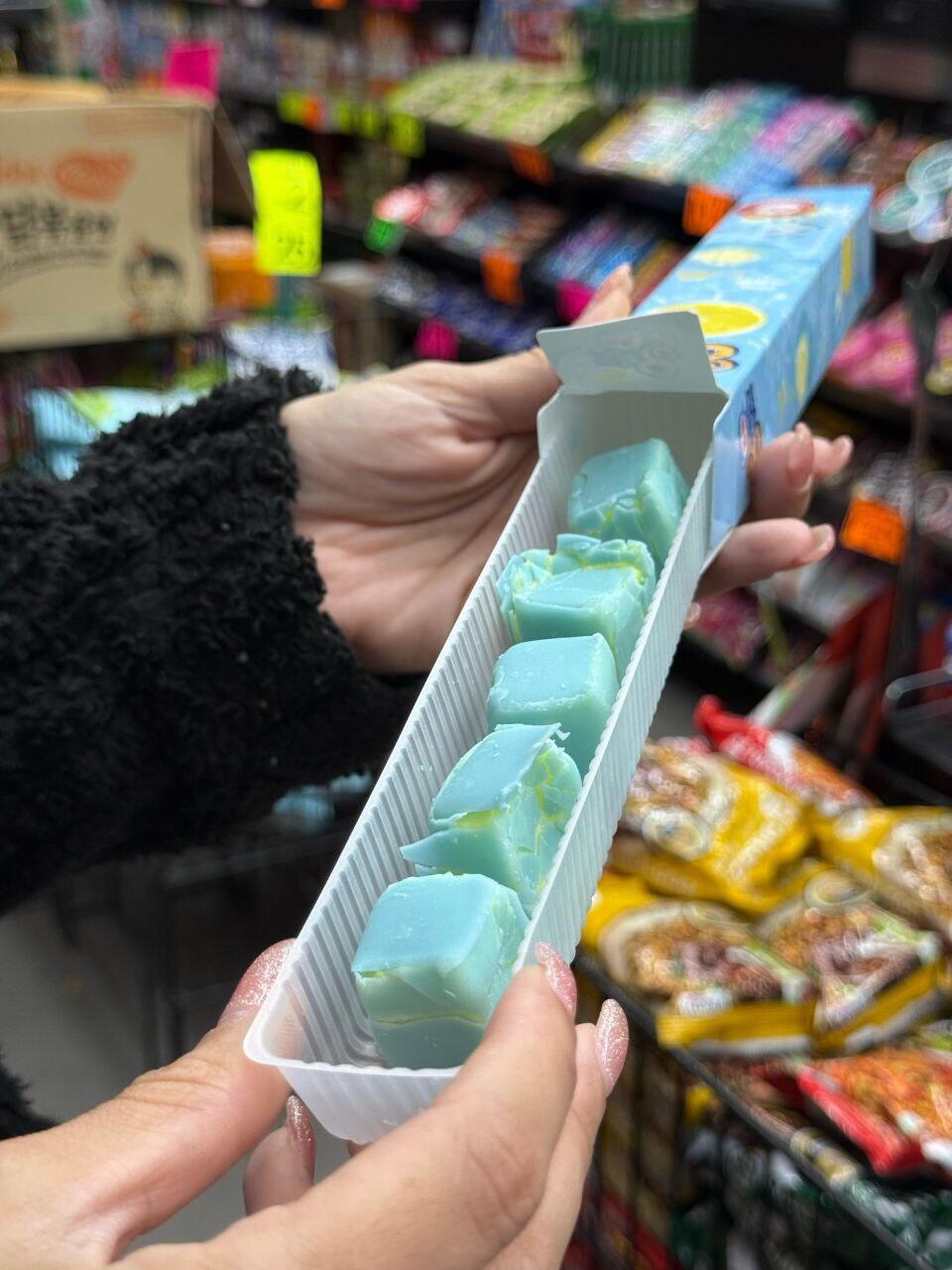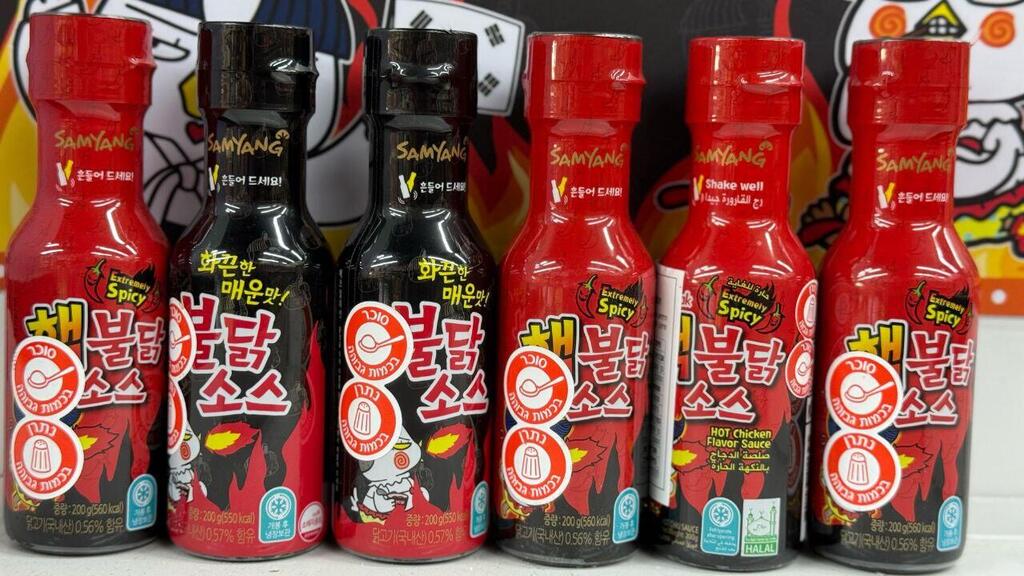Getting your Trinity Audio player ready...
Asian cuisine has long since shed its image as an exotic novelty in Israel—it’s now a staple of the local culinary scene. Once limited to mall food courts, it's now found everywhere: from restaurants specializing in the genre to a steady stream of new trends, and ingredients once confined to niche specialty stores now casually lining the shelves of neighborhood supermarkets.
After sushi, ramen, mochi shops and even the viral Chinese ice cream that swept TikTok, it's time for snacks to take the spotlight. With endless colorful packaging, unexpected flavors and curious textures, these treats often leave you wondering before you open the bag: is this going to be amazing—or just plain bizarre? That sense of intrigue is exactly what fuels their success on social media.
In recent years, numerous stores specializing in Asian snacks have popped up across the country. We set out to see—do they actually live up to the hype?
What’s on the shelf?
China Town, tucked into Tel Aviv’s bustling Carmel Market, is the perfect place to explore Israel’s growing obsession with Asian snacks. A paradise for snack lovers, the entrance alone greets visitors with rows of ramen varieties and a dazzling array of colorful sweets.
Inside, shelves are packed with a sensory overload of Asian treats from across the continent—sweet, salty, sour, spicy, hot, cold, even frozen. Mysterious sauces, unidentifiable flavors, candies in shapes you’ve never seen and even durian—the notoriously pungent “king of fruits” from Southeast Asia—are all part of the experience. Japanese? Korean? Thai? Take your pick.
Before diving into the flavors, it’s worth noting a few things: many of the snacks are not kosher, and not all are imported from Asia. Some are locally made imitations. Still, the vendors are used to curious customers with adventurous cravings. After browsing the shelves and getting some recommendations, the tasting began.
We started savory: crunchy pea snacks hit the mark, shrimp-flavored chips were texturally fun but flavor-wise questionable and crispy, sweet-spicy seaweed left no doubt—it tastes like the ocean, in a big way.
To cool off, we sipped a peach-flavored milk tea: light, sweet and surprisingly refreshing.
Get the Ynetnews app on your smartphone: Google Play: https://bit.ly/4eJ37pE | Apple App Store: https://bit.ly/3ZL7iNv
Next up: sweets. A passionfruit mochi—already a favorite among Israeli dessert lovers—was flawless. Then came a layered jelly candy with a twist: peel away the outer gelatin and find a tiny gummy candy inside, shaped like an unidentifiable animal. Tasty, though sticky fingers made for a less pleasant experience. We also tried two types of mochi ice cream—strawberry (can’t go wrong), and sea salt sorbet. Yes, really. A gently salty coating with tart sorbet inside—strange but seriously worth coming back for.
There are also DIY meals for home. One standout: tteokbokki, chewy rice flour cylinders (often called “rice cakes”) in a spicy-sweet sauce. Packaged in easy-to-prepare kits—think instant noodles with an Asian twist—they’re fiery and addictive. A word of caution for the spice-sensitive: some of these prepared dishes pack serious heat.
How much does it cost?
The selection is vast—and so is the price range. Nearly every product is available in both single-serve and family-size packaging, for those ready to go all in. On the savory side, crispy seaweed snacks cost around 16 shekels, shrimp-flavored chips are priced at 10.90 shekels, and crunchy pea snacks go for 8.90 shekels.
In the sweets section, a single mochi (sold loose) costs 12 shekels, as does a pack of sticky gummy candies. A box of mochi ice cream goes for 17.90 shekels. Prepared items like tteokbokki or ramen are typically priced at 14.90 shekels each.
In short, it all depends on how much you’re willing to spend on your Asian snack adventure, how eager you are to explore new flavors—and how susceptible you are to colorful packaging and social media trends. For newcomers, it’s best to start with individual portions. You never know—you might find out spicy-sweet seaweed isn’t really your thing.








